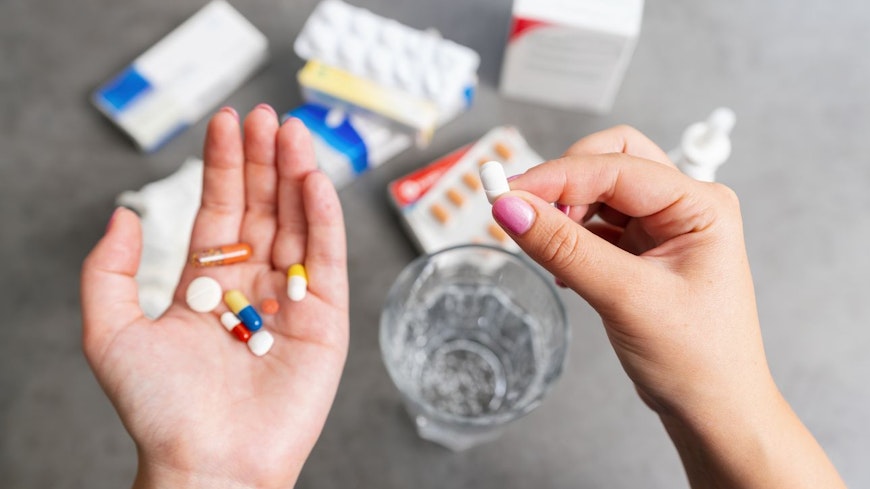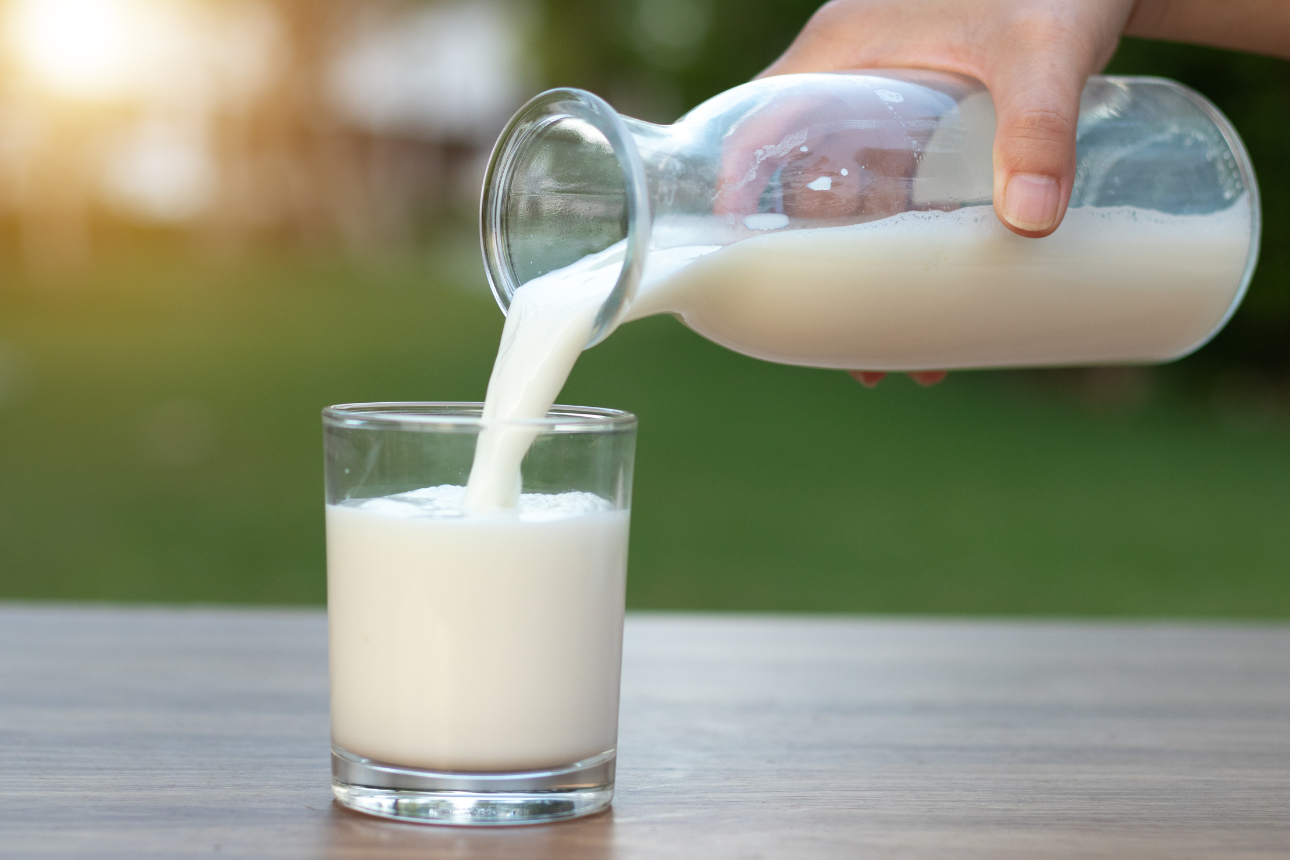
By Belinda Castles
Researcher | Kairangahau
There’s no cure for the common cold or flu. But there’s a host of products that claim to offer relief for a blocked or runny nose, irritating cough or both. Most of these claims are based on the ingredients the products contain. Yet when we examined the evidence for these ingredients effectiveness, the claims don’t always stack up.

Cold and flu medicines often contain many ingredients that claim to do different things. One remedy will claim to clear your nose, another suppress your cough. A third will do both, in a combo product designed to fix all your winter ills.
Tempting, but will it work? Over-the-counter cold and flu remedies can be expensive, and it’s easy to spend a small fortune attempting to rid yourself of that drip on the end of your nose.
To make things easier, we’ve checked out the evidence for the active ingredients in remedies that claim to combat the common symptoms of colds and flu.
Basic safety precautions
Whatever remedy you choose, there are some basic safety precautions to follow. If you’re taking any other medicines, check with your doctor or pharmacist before taking cold and flu remedies. Make sure you choose a product that matches your symptoms and follow the directions on the label.
It also pays to check the list of ingredients. The same ingredients can pop up in different products, putting you at risk of double dosing. Some ingredients can also make you drowsy – these are often labelled as night products. Avoid taking them if you’re planning on driving.
Never give a cold medication to a child that’s meant for an adult. Instead, choose one formulated for children and follow the instructions. If you’re not sure ask a pharmacist or your doctor.
Medsafe, a unit of the Ministry of Health, recommends that cough and cold medicines aren’t given to children under the age of 6 years. For children between 6 and 12 years, check with a pharmacist. Decongestant nasal sprays that contain oxymetazoline or xylometazoline aren’t suitable for children under 2 years.
If cold or flu symptoms persist, see your doctor.
Coughs
You’re coughing so hard, your stomach hurts, yet you can’t shift that tickle in your throat. Or worse, you spray your companions with mucus every time a coughing fit comes on. But you just can’t stop.
Coughs are either dry and hacking, or wet and chesty (often with mucus), and can last for up to 3 weeks after your infection has gone.
Chesty (or wet) cough medicines typically use an expectorant, like guaifenesin, or a mucolytic, like bromhexine, which aims to loosen the secretions in your airways, so it’s easier to cough up the mucus.
Dry cough medicines usually contain a suppressant. However, there are now limited options in New Zealand. Common ingredients were dextromethorphan and pholcodine. Due to a re-licensing issue, dextromethorphan is currently not available in New Zealand and products with pholcodine can’t be sold due to safety concerns.
The evidence for any of these ingredients being effective is less than convincing. According to Healthify He Puna Waiora, New Zealand’s largest independent health information website, there’s no good evidence that cough medicines help, and in most cases a common cough doesn’t need to be treated.
Blocked nose
That perennial winter favourite, the blocked or stuffy nose, and the congested sinuses that accompany it, can be hard to shift.
Decongestants can help open your airways by reducing the swelling of blood vessels in your nose and sinuses. They come as nasal sprays and drops, tablets or capsules.
Oral decongestants usually contain phenylephrine, often in combination with other ingredients. Yet in 2023, the US Food and Drug Administration concluded that phenylephrine is ineffective as a nasal decongestant.
Decongestant tablets can also cause side effects, such as increased blood pressure and sleep problems. People with heart disease, diabetes, high blood pressure or thyroid conditions, should check with their doctor first before taking them.
Nasal decongestant sprays can offer immediate relief but should only be used for 3 to 5 days. Using them for longer can cause a painful or bleeding nose and “rebound congestion”, with your blocked nose returning once you stop using the product.
Chest rubs and vapouriser fluids aren’t recommended – they have no proven benefit and can be poisonous if swallowed.
You can ease nasal congestion by flushing your nose with saline nasal drops. Saline helps thin the mucus, doesn’t cause rebound congestion, and is safe for children and babies. Saline products from the pharmacy have the benefit of being the right strength and in packaging that makes them easier to use.
Remember pseudoephedrine? Sales were restricted in 2009 to prevent pseudoephedrine being used to make methamphetamine. In April, parliament reclassified it from a prescription to a restricted medicine under the Misuse of Drugs Act 1975. You can now buy decongestants containing pseudoephedrine over the counter again.
Runny nose
“My nose is running like a tap” describes the classic winter symptom perfectly. Your nose is raw from wiping, but there’s always another drip forming.
Some cold and flu remedies contain antihistamines, such as chlorpheniramine, which may stop a runny nose and make sleeping easier. But the jury’s out on how effective antihistamines are, and they can make you drowsy and affect your driving.
An anticholinergic spray that contains ipratropium bromide may also help dry up a runny nose, and if you have the bad luck to have a nose that is both stuffy and runny, an anticholinergic/decongestant combination product might provide relief.
Aches and pains
Aches and pains go hand in hand with colds and flu, but paracetamol or ibuprofen can ease them, including headaches.
Paracetamol works well when taken as directed and is safe for most people, including children. Extra care is needed with ibuprofen, though, if you have high blood pressure or cholesterol, diabetes, stomach ulcers or some other health conditions.
Sore throat
Sore throats can be one of the more painful, and hence all-consuming, symptoms of winter illness. Most are caused by a viral infection – think common cold, flu or Covid – and will usually get better by themselves within a week.
Sucking a lozenge can soothe a sore throat (it increases the flow of saliva), but you’ll get the same effect from a lolly or a spoonful of honey. Some lozenges contain numbing agents that provide temporary relief, but these aren’t suitable for children and care needs to be taken when drinking hot drinks. Some lozenges are also high in sugar, so aren’t suitable for people with diabetes.
Pain relief (paracetamol or ibuprofen) may ease symptoms, and gargling salt water (half a teaspoon of salt in a glass of warm water) can also relieve swelling.
Strep throat is a type of sore throat caused by the bacteria Streptococcus, which may need to be treated with antibiotics as it can lead to rheumatic fever. Māori and Pasifika children are more susceptible to rheumatic fever and should get a sore throat checked straight away.
What about natural remedies?
A range of natural remedies are marketed as relieving cold and flu symptoms, although the Healthify website states the evidence to support their efficacy is weak.
Vitamin C
For most people, vitamin C doesn’t prevent colds and only slightly reduces their length and severity. It’s generally considered safe, but high doses can cause diarrhoea, nausea and stomach cramps.
The Cochrane Collaboration, which conducts systematic reviews on healthcare, is currently assessing the effectiveness of vitamin C supplements in preventing and treating acute upper-respiratory tract infections (including colds).
Probiotic supplements
A 2022 Cochrane review found that people taking probiotics in a supplement or dairy product were less likely to develop respiratory infections. If they did get one, they may be sick for a shorter period. Many different strains of probiotics are available, and more research is needed to determine which strains and what dose is most effective.
Garlic
Garlic is often claimed to boost the immune system. However, there’s not enough evidence to show it’s helpful for colds. It can also react with some medicines.
Echinacea
There is some evidence that regular use of echinacea supplements can slightly reduce a person’s risk of catching a cold, although the benefit appears weak.
Honey
A 2020 review looked at 14 studies that compared honey with other treatment options, such as cough syrups. It found honey had the edge, particularly for reducing cough frequency and severity. You can eat honey straight off the spoon or add it to a drink, but it’s only suitable for children aged 12 months and older.
Zinc and ivy leaf
There’s some evidence that zinc lozenges may reduce the duration of a cough in adults, if used within 24 hours of the symptoms starting. The downside is their unpleasant taste.
Likewise, there’s some evidence that ivy leaf, found in some bronchial syrups, can reduce the frequency and severity of coughs.
What works?
The long and the short of it is that there’s no cure for the common cold. Most over-the-counter medicines won’t offer anything more than a placebo effect. The best thing you can do is ask your doctor for a sick note instructing you to take a few days off. This helps prevent you passing the virus on.
It’s also important to drink plenty of fluids. A warm honey and lemon drink will soothe your throat. Avoid caffeine and alcohol because they can be dehydrating.
Other than that, everyday painkillers like paracetamol and ibuprofen offer the best prospect of relief. They’ll also save you money, compared to the bespoke cold and flu remedies on offer, and you’ll pay even less if you choose generic, rather than branded, medicines.
Generic medicines have the same active ingredients in the same quantities as the brands, but at a fraction of the price. It is also often cheaper to buy larger packets from a pharmacy. For example:
Pams Paracetamol Tablets, 500mg, 20 pack – $2.99 or 15c each
Panadol Paracetamol Tablets, 500mg,20 pack – $4.89 or 24c each
AFT Paracetamol Tablets 500mg 100 pack – $7.99 or 8c each.
This report was peer reviewed by Healthify He Puna Waiora healthify.nz and The Royal New Zealand College of General Practitioners.

Why are natural health products so popular?
We asked consumers who take natural health products such as vitamins, what they take and why they take them.

